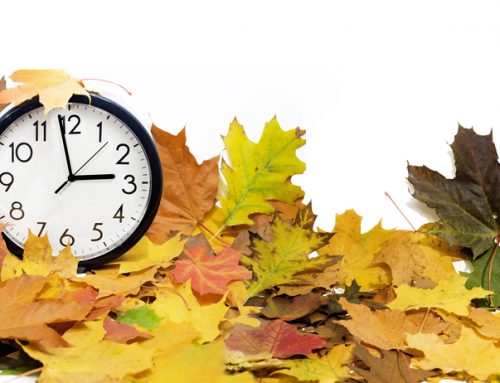Shift work is notoriously difficult. Ask any group of shift workers whether they like it, and you’ll elicit a variety of responses, from toleration, to downright hatred!
Hands up who likes working shifts?
Few people openly enjoy shift work. It can be exhausting, frustrating, draining and unsociable. It can lead to health problems, both physical and mental, and social problems too, including marriage and relationship break downs.
All in all, most people who work shifts have it bad, and sometimes we need to hear how bad they get it. As one mum on mumsnet.com is quoted as saying :-
“I f***ing hate working f***ing nights!
They f**k me up physically. I get zits, wind and the runs. I cannot sleep during the day so get more and more f***ing tired.
DD also hates me working nights. Life with her is difficult at the best of times and anything that makes it worse is best avoided.
I f***ing f***ing hate nights!”
Shift working sucks! Big time!
The nurse has plenty of supporters out there. And the biggest issues are related to sleep and social life.
The majority of shift workers, when questioned talk about the serious challenge of balancing sleep and social activities with their varying shifts.
Scrubsmag.com asked nurses what their biggest frustrations were related to working shifts. The answers all followed the same pattern. Simply put, shift workers just don’t have enough time between shifts to sleep, spend time with their friends and families, and build a social life, before they have to get ready for their next shift.
As Sarah, a nurse at a university hospital, is quoted as saying:
“The biggest challenge for me is managing social activities. People who work normal hours don’t always understand that I still need to sleep between/after work shifts, and that I don’t have the entire day free to do whatever I like.” National Sleep Foundation
Sleep is another major issue. Shift workers find themselves simply too tired to engage with social activities after a shift.
This retired police officer, quoted in the Guardian newspaper, corroborates Sarah’s experience.
“It is physically demanding to try to stay awake all night. You are tired during the day and tired during the night. As I got older, I found it even more difficult to stay awake. By the time you get to the Monday, you’re a zombie. You forget appointments, you have to write everything down. Unfortunately, you don’t get a chance to sleep during the day. The rest of society doesn’t expect you to sleep. In summer, everyone’s out in the garden, cutting grass; you’ve got the curtains pulled and the earplugs in.” Guardian Newspaper 2014
In the same article, another health care professional talks of the physical effect of working shifts.
“You feel very unwell and jetlagged. I could barely talk sometimes. I would be seeing a patient and taking down their history, and then would have to go to the toilet and cough up phlegm. Twice when I was on night shift I had to take time off as I was sick in bed. I remember feeling really guilty.”
Shift workers suffer more
The results are that shift workers suffer – bad health, but also other issues too. Studies show that those working rotating shifts during the night and early morning have significantly lower levels of the hormone and neurotransmitter serotonin. Serotonin plays an important role regulating sleep. When levels of serotonin drop low, there are a number of side effects, including
- Sleep problems
- Anger
- Depression
- Anxiety
As we have mentioned in previous blogs, shift work sleep disorder is a circadian rhythm sleep disorder that is caused by a work schedule that takes place during the normal sleep period, confusing the body’s internal clock.
This results in insomnia, broken sleep patterns, severe fatigue, poor sleep quality and so, not feeling refreshed upon waking. It’s been linked to poor work performance and alertness, and may also increase the risk of getting injured at work.
It’s noted that rotating shift workers typically sleep one to four hours less than average, and often feel fatigued when they’re awake.
We all have to work – but shift work isn’t for everyone
One constant concern from shift workers is that they are missing out on life. This former psychiatric nurse highlighted why they just couldn’t do it anymore.
“You’re fine until midnight, even sociable. Two comes, three. And then you become cold. You’d be sitting there at 4am, saying: “This is not good for the health is it?” “No, definitely not.” “How long are you intending to do it?” “A while. Better pay.” For me, it was a temporary thing. But looking at my colleagues, the regular staff, they had a routine. They had done it for 20 or 30 years. I don’t think that can be good. You miss out on life; you don’t really see people; you are on the outside of society. I’m on the same bus as everyone else, but they’re going to work and I’m going home. They look fresh and I look like I just killed someone. I couldn’t do it for long without thinking: what’s going on out there in the world?” Guardian Newspaper 2014
This healthcare professional decided that the life wasn’t for him. But for workers in that situation, working shifts is a necessity and a much needed one.
Shift workers generally provide a valuable service, whatever their job or role. We need them to continue to exist. But at what cost to the individual workers?
Making the best of a bad job?
There’s no question that staying awake all night, while your body expects to be sleeping, is harmful to health. But there are rare exceptions to this rule.
Some people may very well feel fine working shifts. This may be because their bodies are strong enough, physically and mentally, to handle the disruption in the short term. But, the question is, are compromising their long-term health?
The suggestion from many health practitioners is to make sure you rotate and switch hours as often as you can, at the least making sure you don’t stay on nights for longer than a couple of months at a time, giving your body a chance to readjust in between.
As for switching from a night shift to a day shift this great article on 33 secrets for getting a good night’s sleep can help you get your sleep back on track.
The primary rule, though, is to listen to your body, and make sure you are planning your shift pattern to keep track of days when you can relax and enjoy some social interaction. Without this, health issues and mental health issues can result.
Sometimes, though, like the mumsnet nurse, it good just to have a good old rant and tell the world just how bad it can be!
We’d like to hear from you
We’d like to hear your views and experience on shift working. Love it or loathe it? How do you manage sleep and social life and keeping your health together in the circumstances?
Please feel free to add your comments below.






